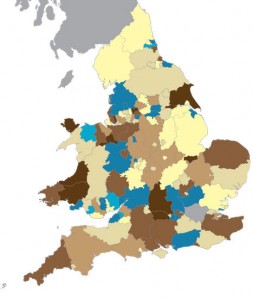These are some welfare links we found interesting during the second two weeks of August.
- Food bank Britain: life below the line: Guardian. The Trussell Trust opens three new food banks a week, finding not only those facing benefit cuts but also working families, are queuing up.
- Living standards crisis is a housing crisis. Channel 4. Faisal Islam; The daytrippers take in the sun on the south Devon coast. It’s the height of the summer holidays in Teignmouth. No one’s talking economics, but here in the district of Teignbridge, the squeeze is everywhere.
- Record numbers of care homes warned over illegally poor standards, Telegraph. Laura Donnelly; As warnings and standards reports become the norm, care homes come under fire, with figures out from the Care Quality Commission (CQC).
- Bedroom tax forcing previously paid-up tenants into areas 24dash.com. In Newport and Monmouthshire 55% of tenants affected by the under-occupancy policy have fallen into arrears since its inception on 1 April.
- More Police forces trial ‘street triage’ mental health scheme. BBC; Five more police forces are to pilot a scheme whereby mental health nurses accompany officers on call-outs, the government has announced.
- Concern over possible outsourcing of disability social work service. Community care; Staff support for establishment of all-age disability service tempered by concerns over possible future sell-off to private sector or creation of social enterprise.
- Café run by young people offers mental health counselling . Guardian, social care network; The Yasp cafe offers a laid-back environment where young people can receive support or train as mentors.
- DWP is using your taxes to employ people on zero hour contracts. What Can I Do About It?
- Zero-hour contracts are inappropriate in the field of social work. Guardian, Homecare Hub; Contracts in which hours can be given or removed as reward or punishment make bullying easier and whistleblowing dangerous.
- Bank of America intern death sparks debate over hours. BBC. How much did overwork play a part in the death of an intern in London? The coroner’s report will be out in a month.
- Labour need to re-define what it means to be “Working Class”. And quick. Diary of a Benefit Scrounger blog. A passionate plea for the worker to be represented in 21st century Britain.
- The Secrets Cuts: part 4, Personal Independence Payments and part 6, How are those with mental health problems treated by Atos? New Statesman, Alan White.
